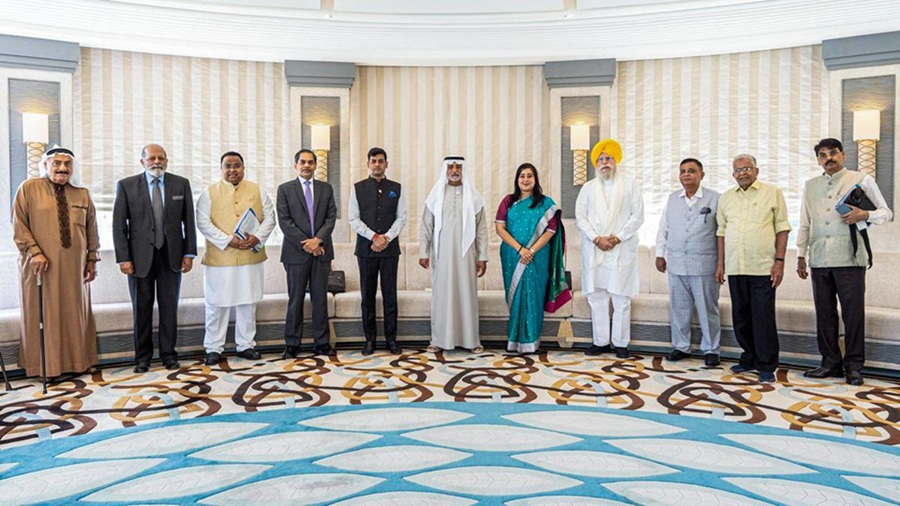In a significant show of unity, India has launched a nationwide and international campaign against terrorism, spearheaded by multi-party delegations comprising members of Parliament (MPs), diplomats, and civil society representatives. The campaign marks a rare moment of bipartisan consensus in India’s often-divided political landscape, reflecting a growing national resolve to confront terrorism through a combination of diplomacy, public outreach, and strategic alliances.
A Unified Front Against a Common Threat
The initiative, which began earlier this month, is being led jointly by the Ministry of External Affairs and the Ministry of Home Affairs. Delegations composed of representatives from the ruling Bharatiya Janata Party (BJP), Congress, and regional parties such as the Trinamool Congress, Nationalist Congress Party, DMK, and others have begun a series of coordinated visits to foreign capitals, United Nations offices, and strategic partners. Their mission: to internationalize India’s concerns about cross-border terrorism, garner global support for counter-terror initiatives, and pressure state sponsors of terror into accountability.
Home Minister Amit Shah, while announcing the initiative in Parliament, emphasized the need for a “united national voice” in the fight against terrorism. “Terrorism does not differentiate between caste, creed, or political affiliation. It is our collective responsibility to stand against it with moral clarity and strategic resolve,” Shah said.
International Diplomacy in Action
Delegations have already visited Washington D.C., Brussels, and Tel Aviv, where they held high-level discussions with lawmakers, security experts, and members of the Indian diaspora. Key topics of discussion included intelligence-sharing agreements, coordinated action against terror financing, and the enforcement of global sanctions against proscribed terrorist entities.
In Washington, the Indian delegation met with members of the U.S. Congress and officials from the Department of Homeland Security. Bipartisan support was expressed for India’s efforts, with U.S. lawmakers reaffirming the Indo-U.S. partnership as a cornerstone of regional stability. Congressman Raja Krishnamoorthi described the campaign as “a model of democratic resilience against extremist threats.”
In Brussels, members of the European Parliament were briefed on the security situation in South Asia, with special focus on India’s concerns regarding Pakistan-based terror networks. A formal appeal was made to list specific individuals and groups under the EU’s counter-terror sanctions framework.
Meanwhile, the visit to Israel focused on defense technology sharing, cyber-security cooperation, and counter-terror training programs. Indian MPs visited Israel’s counter-terrorism training centers and participated in simulations showcasing rapid response strategies.
Domestic Outreach: Building Public Awareness
The international push is complemented by an equally vigorous domestic campaign. In cities such as Mumbai, Delhi, Kolkata, and Bengaluru, the multi-party initiative has organized public forums, university panel discussions, and community outreach events to raise awareness about terrorism, radicalization, and national security.
The goal is twofold: to educate citizens on the evolving nature of terrorist threats and to de-politicize national security by fostering bipartisan dialogue. At a recent panel at Delhi University, Congress MP Shashi Tharoor and BJP spokesperson Sambit Patra shared the stage to discuss the importance of “national coherence” in combatting ideological extremism.
These events have attracted a cross-section of the Indian public, from students and academics to ex-servicemen and community leaders. The message is clear: the fight against terrorism is not the domain of one government or one ideology, but a collective mission.
Addressing Challenges: Skepticism and Geopolitical Tensions
Despite the broad support, the campaign faces several hurdles. Critics argue that such initiatives may be more symbolic than substantive, especially if not backed by strong policy measures at home. Questions remain about India’s ability to enforce anti-terror laws uniformly and ensure justice in high-profile terror cases without political interference.
There is also the ever-present challenge of geopolitics. India’s calls for global action against Pakistan-based groups have met with diplomatic roadblocks, especially from nations with strategic ties to Islamabad. China’s repeated blocking of UN resolutions to blacklist certain terrorists continues to frustrate Indian efforts at the international level.
Nevertheless, Indian officials are hopeful that sustained engagement and multilateral pressure will eventually shift the global conversation. A senior Indian diplomat, speaking anonymously, said, “We may not see immediate change, but this campaign is about setting the stage for a long-term strategic recalibration of how the world deals with terrorism.”
Looking Ahead
The campaign is expected to expand over the coming months, with planned visits to African nations, ASEAN partners, and key Middle Eastern states. India is also preparing to host an International Counter-Terrorism Conference later this year, inviting lawmakers and security experts from around the world to Delhi.
While it is too early to measure the tangible outcomes of the campaign, its symbolic impact is already evident. The image of Indian leaders across party lines speaking in unison against terrorism has struck a chord both domestically and abroad.
As the global threat of terrorism evolves, India’s multi-party initiative offers a rare glimpse into what is possible when political rivalry takes a backseat to national interest. In a world increasingly divided along ideological lines, such gestures of unity could be the strongest weapon in the fight against extremism.
